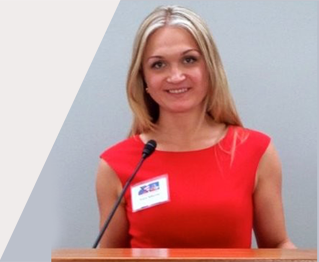As the global population ages, many nations, including the United States, are embracing a trend to provide care for seniors in the comfort of their own homes. This approach not only promotes dignity and independence for elderly individuals but also helps alleviate the financial and logistical strains on hospitals and long-term care facilities.
New York State (NYS) is taking a proactive stance in this effort, particularly under Governor Kathy Hochul’s administration, which is investing heavily in expanding the home health aide workforce in 2025 and beyond. On December 3, 2024, New York State Department of Health’s (NYS DOH’s) Center for Regulatory and Policy Initiatives, Office of Aging and Long-Term Care, released the “Direct Caregiver Flexibility” grant* in order to galvanize growth in the supply of trained, ready-to-work personnel in this critically important role to meet the serious need.
One key challenge to meeting this need is the state’s capacity to staff. Although the current workforce reflects a shortage of equipped home health aides in the workforce, a contingent of new Americans may indeed have the caregiving skills and kindhearted disposition needed to support patients. The challenge—many are English Learners (ELs) who lack the English communication skills needed to be effective as home health aides.
Thus, this push has brought to light a critical but often overlooked aspect of caregiving: the ability of home health aides to communicate clearly and confidently in English. The good news—there is a tangible solution that can resolve this conundrum—we can dedicate resources to building the language skills of non-native-English-speaking caregivers to communicate clearly with patients or clients.
This blog explores the initiatives driving this trend, the language challenges faced by aspiring caregivers, and how tailored Adult ESL (English as a Second Language) training can ensure the success of these programs.
The Shift Toward Home-Based Care: A National and Global Trend
Around the world, the healthcare sector is moving toward home-based care for seniors to improve quality of life, reduce costs, and ease pressure on hospital systems. Home-based care allows elderly individuals to maintain their independence while receiving personalized attention in a familiar environment. However, a successful pivot to enact this healthcare shift requires a robust and well-trained workforce of caregivers.
In the United States, the shortage of home health aides has become an increasingly pressing issue. According to the Bureau of Labor Statistics, the demand for home health and personal care aides is expected to grow by 25% from 2021 to 2031, a rate significantly faster than the average across all occupations. Recognizing this urgency, New York State has introduced funding initiatives to address the caregiver shortage.
New York State’s 2025 Grant Initiative
In 2025, the New York State Department of Health (NYSDOH) is launching a significant initiative to increase the number of trained home health aides. With $19 million in annual funding allocated over five years, the program aims to develop centralized training systems to prepare direct care workers, including home health aides (HHAs). Contracts for this funding will begin on October 1, 2025.
These grants represent an opportunity to train a new generation of caregivers while addressing the challenges faced by many prospective HHAs—particularly those for whom English is not their native language. For these individuals, mastering English is not just a job requirement; it’s an essential skill for providing high-quality care to seniors who may already face challenges in hearing and comprehension.
The Critical Role of Adult ESL Instruction for Non-Native-English-Speaking Caregivers
Clear and confident communication is crucial in caregiving. From discussing medications to engaging in meaningful small talk, home health aides must be able to connect with their clients or patients and ensure their instructions and concerns are easily understood. For non-native English speakers entering this field, language barriers can pose significant challenges.
Here’s why Adult ESL instruction (and enhanced English language skills for caregivers) is vital for the success of home health aide programs:
1. Improve Job Readiness: Many aspiring home health aides struggle with job interviews (including phone screens, Zoom interviews, in-person interviews, and follow-up correspondence) due to limited spoken English proficiency and, potentially, business English or medical English writing as well. They may also grapple with initial training. Adult ESL training can equip English learners with the vocabulary and conversational skills needed to secure employment.
2. Enhance On-the-Job Communication: ESL programs tailored for home health aides can focus on medical terminology, caregiving-specific phrases, and practical small talk to help aides communicate effectively with clients and other healthcare professionals alike. The training can include all four language skills: reading, writing, speaking, and listening—and incorporate specialized industry vocabulary, useful phrases, grammar and other linguistic elements.
3. Address Senior-Specific Needs: Seniors may face hearing loss or cognitive challenges, so precise and direct communication is essential. English pronunciation training, also known as accent reduction or accent modification, gives English learners (ELs) the support they need to enunciate English. This specialized education results in home health aides who can clearly articulate their message in a way that is easy to understand. To effectively do so, ELs will need instruction that encompasses articulation of consonants, vowels, syllable stress, intonation, and other prosodic elements of the English language.
4. Promote Cultural Sensitivity: ESL instruction often includes cultural orientation, helping caregivers navigate differences in communication styles and build trust with their clients. In addition to pronunciation and word choice, non-native-English-speaking home health aides benefit from learning how to convey their intended meaning through body language, including gestures, eye contact, and posture. Specialized instruction for HHA’s can incorporate usage of common idiomatic expressions, best practices and go-to topics for small talk, and also strategies to approach sensitive topics.
Speech Fox: The Trusted Resource for Adult ESL Training for Home Health Aides
As an expert in Adult ESL instruction, Melanie Fox of Speech Fox brings 25+ years of experience to the table. Her background includes teaching non-native English speakers to improve pronunciation, develop job-specific vocabulary, and build confidence in speaking—all tailored to their unique needs.
Speech Fox specializes in areas critical to home health aides, such as:
- Medical English for Healthcare Workers: Train participants in caregiving-related terms and phrases.
- Pronunciation and Accent Clarity: Help caregivers speak clearly so they are easily understood, taking into consideration their senior clients may have hearing difficulties.
- Job-Specific Communication: Prepare trainees for interviews, workplace interactions, and client conversations.
Melanie’s extensive experience includes developing custom ESL curricula, training Adult ESL teachers, and delivering instruction both virtually and in person.
Speech Fox LLC’s status as a certified diversity supplier (WBE, SBE, DOBE) makes owner and speech coach, Melanie Fox, an invaluable partner for organizations applying for NYSDOH grants or similar funding opportunities.
How Speech Fox Can Support Grant-Funded Programs
Melanie has been invited to participate in multiple grant proposals to train home health aides in New York State (NYS). Here’s how Speech Fox can be a strategic partner in these efforts:
- Customized Training Programs: Speech Fox designs curricula tailored to the specific needs of home health aides, including medical English and caregiving vocabulary.
- Flexible Delivery Options: Training can be conducted via Zoom, in-person at Speech Fox’s Manhattan office, or onsite at client locations.
- Interview Training Expertise: In addition to linguistic expertise, Melanie also specializes in teaching job interview preparation—she can help create strategies and practical tactics to help trainees with successful placement. If helpful to the program, Melanie can help learners by equipping them with résumé and cover letter templates, sharing job-seeker tips for LinkedIn profiles and job searches, and simulating common job interview questions. Through practice and feedback, Adult ELs will gain the clarity and confidence they need to perform well on job interviews for HHA positions.
- Assessment & Custom Cohorts: Melanie Fox could assist your program to segment learners into groups to accelerate learning and progress. Upon request, she can create specialized groups (e.g. for Spanish speakers), to focus curriculum and accelerate learning. She can conduct live or asynchronous assessments, or even self-assessment surveys, to help determine groupings by proficiency level, speaking challenges, Native language, or other factors as desired.
- Multilingual Support: Melanie is multilingual, which is helpful for both student instruction and program support. She speaks fluent Spanish and proficient Italian (as well as beginner level German and French, and she dabbles in other languages such as Brazilian Portuguese and Cantonese). Melanie also teaches Spanish language pronunciation (Spanish accent reduction to and from various dialects of Spanish) as well as techniques and tactics for language learning for English, Spanish, and other world languages.
Conclusion: English Language Training as the Key to Home Health Success in the US
The success of New York State’s home health aide initiative hinges not only on increasing the workforce but also on ensuring that these caregivers are prepared to communicate effectively in English. Language clarity is a cornerstone of quality care, enabling aides to build trust, provide accurate assistance, and improve outcomes for their clients or patients.
With decades of experience in Adult ESL instruction and a deep understanding of the caregiving industry’s needs, Melanie Fox of Speech Fox is uniquely positioned to support these efforts. Whether you’re applying for grant funding or seeking to enhance your training programs, make Speech Fox your trusted partner to create a skilled and confident caregiver workforce.
Contact Melanie Fox today to discuss how Speech Fox can support your program with tailored Adult ESL (English as a Second Language) and communication training for home health aides. Together, we can ensure clear communication and compassionate care for New York’s seniors.














